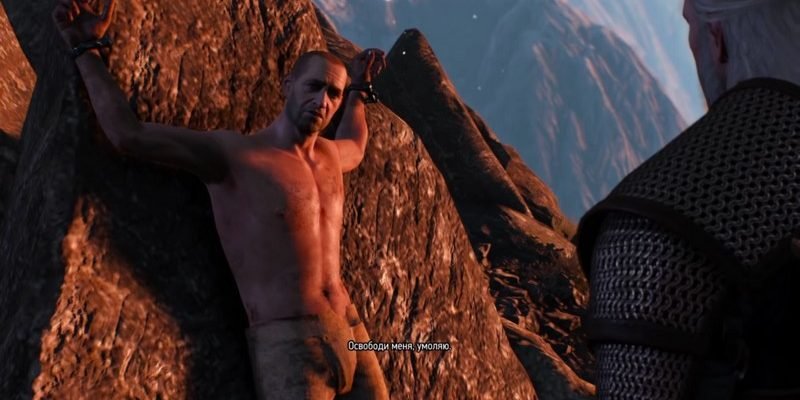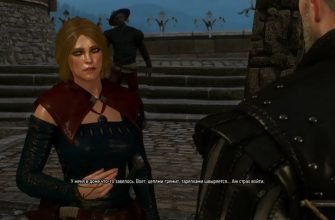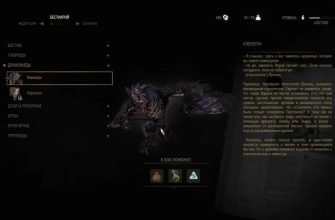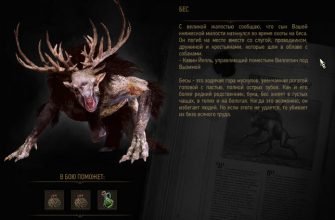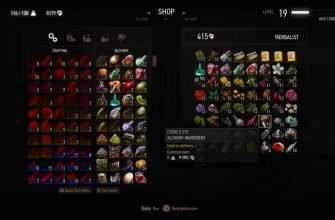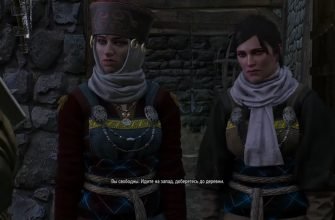In the expansive and richly detailed world of The Witcher 3: Wild Hunt, players will encounter numerous quests that range from the mundane to the morally complex. One of the game’s secondary quests, “Crime and Punishment”, provides a brief yet thought-provoking narrative that delves into themes of justice, deception, and retribution. While the quest may seem insignificant at first glance—offering minimal rewards—it stands out due to the impactful consequence of the player’s choices. This article will explore the detailed walkthrough of the hidden quest “Crime and Punishment” and the various outcomes that arise from the player’s decisions.
Crime and Punishment: Quest Overview
Quest Location: Peninsula east of Ancient Crypt, Rogne, Skellige
Suggested Level: 18
Rewards:
- 10 XP
“Crime and Punishment” can be initiated when Geralt encounters a man tied to a rock, surrounded by circling harpies. The quest’s simplicity hides its deeper, emotionally charged decisions that lay beneath the surface. The low experience reward and lack of tangible items mark this quest as one of narrative significance rather than gameplay progression.
Unlocking and Starting the Quest
The quest begins when Geralt sails or travels to the peninsula east of the Ancient Crypt in Skellige. Upon arriving, he will find a man named Yorg chained to a rock with three harpies attacking him. The initiation of the quest is contingent on encountering Yorg; if players travel too far after the quest appears on the map, it will fail.
Walkthrough: Progression and Choices
Here’s a breakdown of the steps Geralt must take to navigate this quest:
- Objective 1: Defeat the three harpies attacking Yorg. This will clear the area and allow Geralt to safely interact with him.
- Objective 2: Talk to the man tied to the rock. He will introduce himself as Yorg, claiming he has been unjustly accused and sentenced to die for murder. Yorg begs Geralt to free him, asserting his innocence.
At this juncture, players are faced with a significant choice: to free Yorg or leave him to his fate.
Consequences of Choice: Freeing Yorg
If Geralt chooses to free Yorg:
- Yorg will express his gratitude and promise to assist Geralt should they cross paths again.
- The quest will complete immediately, awarding Geralt with 10 XP.
- Players can gather further insights by traveling to Rogne, where a group of mourners at a grave will speak of Gretter, the murdered man. It is within this group that a young girl, Yorg’s sister, will reveal her role in the incident—suggesting she falsely accused their uncle of wrongdoing, leading Yorg into a vengeful frenzy resulting in the murder.
At this point, Geralt has another choice regarding the girl:
- He can comfort her by promising to keep the secret and advising her to never lie again.
- Alternatively, he can harshly rebuke her, making it clear she has learned a painful lesson.
The girl’s regret and the moral complexity make this resolution more impactful, highlighting the nuances of justice and guilt within the game’s universe.
Consequences of Choice: Leaving Yorg
Conversely, if Geralt decides to leave Yorg chained:
- Yorg will remain tied to the rock, destined to die by the elements or predatory beasts.
- Upon traveling far enough from the site, the quest will automatically fail, concluding Geralt’s involvement.
- If Geralt later ventures to Rogne and listens to the mourners’ conversation, he can still speak to the girl, who reveals her guilt over Yorg’s fate.
Game Mechanics and Narrative Impact
While practical rewards for the quest are minimal, the narrative impact and the moral questioning it provokes are considerable. Here’s a summarization of the primary mechanical aspects:
| Choice | Outcome | Experience Points |
|---|---|---|
| Free Yorg | Yorg expresses gratitude; quest completion; further dialogue with Yorg’s sister in Rogne | 10 XP |
| Leave Yorg | Yorg remains chained; quest fails at distance; dialogue with Yorg’s sister in Rogne | None |
The varying outcomes substantially affect Geralt’s moral standing within the game, emphasizing player agency and the weight of their decisions. It also serves to enrich the lore of the game world, reflecting the grim and often morally ambiguous nature of how justice is perceived and executed in Skellige.
Comparative Analysis: Importance and Relevance
Compared to other quests in The Witcher 3, “Crime and Punishment” stands out due to its brevity juxtaposed with deep ethical considerations. While other side quests may offer substantial material rewards or increased character abilities, this quest prioritizes narrative depth and character development.
- Short Term Impacts: Immediate gratification from the rewards here are nearly non-existent. With just 10 XP, the quest does little to advance Geralt’s tangible progression.
- Long Term Impacts: The player’s engagement with the quest affects their overall immersion and connection to the game’s world. It challenges them to think beyond mere combat and resource gathering, considering the repercussions of Geralt’s actions on NPC lives and justice perception in different regions.
- Morality Mechanics: This quest aligns with other morally-driven quests where player choices are significant and often ambiguous. Similar quests include “Wild at Heart,” where Geralt’s decisions also impact characters’ fates profoundly without direct gameplay benefits.
Through these intricate narratives, the game encourages players to engage with its world at a deeper level, often prompting reflection on morality, justice, and the consequences of hastily made decisions.
Conclusion: Narrative vs. Reward
“Crime and Punishment” may be a minor side quest in terms of mechanic rewards, yet it is rich in thematic significance. It encapsulates the essence of The Witcher 3’s narrative style—where many quests serve to deepen the player’s understanding of the world’s complexities and moral shades rather than just advancing Geralt’s abilities or wealth.
Ultimately, the player’s choice to either free or abandon Yorg does more than complete a quest. It puts forth a contemplation of justice and moral responsibility, challenging players to weigh their decisions’ broader adverse effects. In The Witcher 3: Wild Hunt, such quests enhance the immersive experience, making the game renowned for its depth and authenticity in storytelling.

